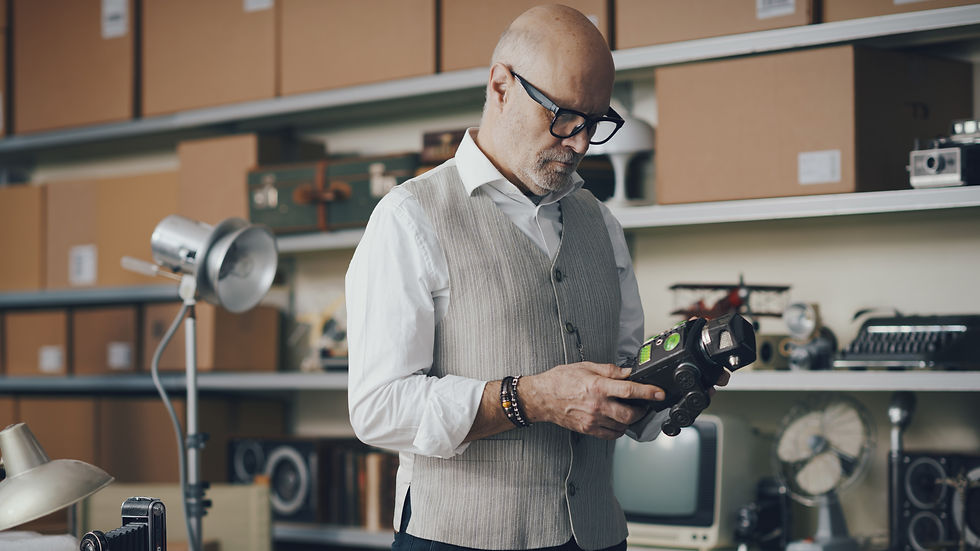How to Get Your Antiques Appraised Like a Pro
- Josh Levine

- Jul 31, 2025
- 2 min read

So, you’ve got an old painting, a funky lamp, or something you found in the back of Grandma’s closet — and you’re wondering, is this worth anything?
The short answer: maybe.The better answer: it depends on how you get it appraised — and who does the appraising.
I’m Josh Levine, a certified personal property appraiser, and I’ve helped thousands of people figure out what their stuff is really worth. Here’s how to do it like a pro.
Step 1: Know What Type of Appraisal You Need
Different situations require different values:
Insurance Appraisal – What would it cost to replace this item with something similar? (Usually the highest value.)
Fair Market Appraisal – What would a willing buyer pay a willing seller today? (Think auction/eBay resale.)
Estate or Probate Appraisal – For legal/tax purposes. Needs to follow strict standards.
Donation Appraisal – For IRS and charitable contribution reporting.
Pro Tip: Ask your appraiser what format they provide and whether it’s USPAP-compliant (Uniform Standards of Professional Appraisal Practice). That’s the gold standard.
Step 2: Choose a Real Appraiser (Not a Buyer in Disguise)
Red flag: Someone offers to “appraise” your item — and then immediately offers to buy it. That’s not an appraisal. That’s a negotiation.
Look for:
Certification (ISA, ASA, or USPAP-compliant)
Independence (they don’t have a financial stake in your item)
Transparency (rates, time estimates, what the final report includes)
Yes, it’s okay to ask for credentials. This isn’t Antiques Roadshow — it’s your money.
Step 3: Prep Like a Collector
Before your appraisal:
Gather any history or provenance (where it came from, who owned it)
Don’t clean or restore the item unless instructed — patina matters
Photograph front, back, signatures, markings, and scale
Note condition honestly
And remember: sometimes the story behind the object is worth more than the object itself.
Step 4: Ask About Selling Strategy
A good appraiser won’t just give you a number — they’ll give you options.
Should you sell it at auction or online?
Is there a buyer’s market for this now?
Could it be worth more in 5 years?
For example, I often advise clients to list certain collectibles on eBay, but send fine art to regional auction houses with a matching clientele.
Step 5: Get It In Writing
Ask for a formal report if you need it for:
Insurance
Divorce or estate settlement
Tax/donation purposes
Resale pricing
Even if it’s a quick evaluation, a summary email is better than a casual guess.
Final Thought:
You don’t have to be an expert to make smart choices — you just need to ask the right ones.And when in doubt, don’t sell or donate until someone like me has taken a look.
I’m here to help.
You can request an appraisal at https://www.joshlevinespeaks.com/book-online
Or learn more from my videos at YouTube.com/@JoshLevineSpeaks




Comments